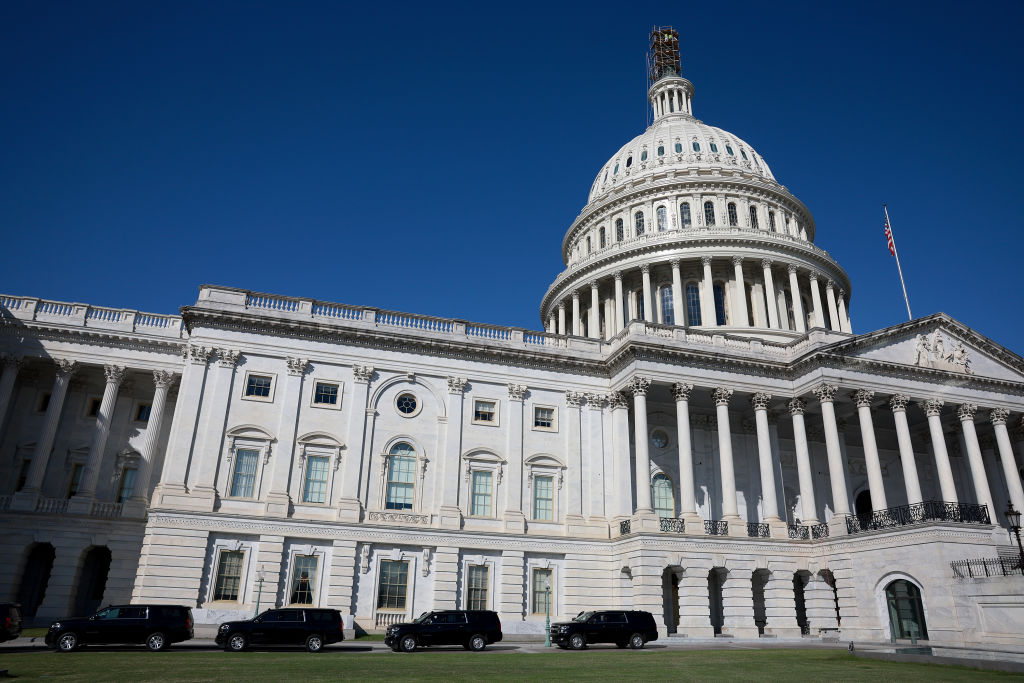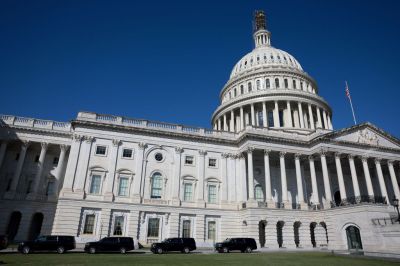The Supreme Court recently heard a pair of cases challenging the Chevron doctrine. That doctrine is the product of the landmark 1984 case Chevron U.S.A. v. Natural Resources Defense Council, which ruled that judges should defer to a regulatory agency’s interpretations of the laws that the agency administers as long as the law is ambiguous and the agency’s interpretation of it is reasonable. The eventual decision in Loper Bright Enterprises v. Raimondo and its companion case, Relentless, Inc. v. Department of Commerce, might have direct implications for the power of the administrative state and the shape of administrative law. But some have argued that getting rid of the Chevron doctrine can help fix Congress. That’s mistaken.
During oral arguments for Loper Bright Enterprises, attorney (and former solicitor general under George W. Bush) Paul Clement argued that Chevron deference is responsible for Congress’ retreat from relevance. As Clement put it,
I think you just have to look at this court’s docket. It’s been one major [agency] rule after another. It hasn’t been one major statute after another. I would have thought Congress might have addressed student loan forgiveness if that were really such an important issue to ... Congress. I would have thought maybe they would have fixed the ... eviction moratorium.
Clement was putting his finger on a very real phenomenon. In recent years, Congress has not legislated all that much on the public policy issues—abortion, gun policy, environmental regulation—that matter most.
Despite that insight, Clement’s Chevron-centered explanation for Congress’ increasing irrelevance is not persuasive. He argued that because of the excessive flexibility that Chevron affords administrative agencies, members of Congress trying to take action on a salient public policy issue often face an easy choice: Either, as Clement framed it, “compromise and forge a long-term solution at the cost of maybe getting a primary challenger or, instead, just call up your buddy, who used to be your co-staffer, in the executive branch now and have him give everything on your wish list based on a broad statutory term.”
But the argument that Chevron created a permission structure to forgo passing meaningful legislation runs into a timing problem. For one, Chevron was decided in 1984, but political science research indicates that Congress’ capacity to pass legislation on salient issues has been dwindling in fits and starts since the 1940s. And one of the exceptions to that decline came in the second half of the 1980s—immediately after Chevron was decided–when Congress passed major legislation addressing taxes, in the Tax Reform Act of 1986; immigration, in the 1986 “Reagan Amnesty”; and environmental regulation, in the 1990 amendments to the Clean Air Act. These issues have bedeviled Congress for the past three decades, but the passage of these bills suggests that Chevron is an inadequate explanation for Congress’ modern deadlock.
The fact that gridlock on salient issues has hit historic highs since the 2010s indicates that larger forces are to blame. As Clement noted, members of Congress care about getting reelected. That is their priority. Political polarization and gerrymandered districts have reduced the competitiveness of general elections, thereby focusing members’ energies on their primaries. The real problem driving congressional gridlock is that surviving those primaries disincentivizes compromising with the other side, even though such compromise is necessary to pass legislation. When these warped electoral incentives meet Congress’ supermajoritarian legislative hurdles like the filibuster, gridlock ensues. The surest way to get reelected as a legislator is to avoid the risk of legislating. It’s better to stay “pure” and ward off a potential primary challenger than to strike a compromise and do something meaningful.
That dynamic, not Chevron, is what explains the shift in the Supreme Court’s docket from fights over statutes to fights over agency rules. Everyone agrees on the effects: With Congress doing next to nothing, agencies are left trying to leverage old statutes to solve new problems. For example, the Clean Air Act was originally designed to reduce air pollutants like sulfur dioxide and lead, and, at the very least, was not tailored to address the unique challenges of carbon dioxide emissions and global warming. But with Congress incapable of passing legislation on the matter, the EPA is left trying to leverage its statutory language to regulate CO2, first by including the gas within the act’s definition of air pollutant and then by designing novel, complex regulatory schemes based on barebones legislative text. Litigation ensues, the Supreme Court increasingly slaps down the EPA, and then everyone gets angry at the court. But it’s essential to appreciate that agency reliance on Chevron is a symptom more than a cause. Congress’ political and structural incentives are what initiate this recurring cycle.
Still, it’s heartening that leading legal conservatives like Clement are voicing discomfort with the current state of play in Congress. Conservatives often emphasize the importance of the separation of powers, but modern constitutional conservatism has also long been concerned with maintaining a proper balance of power between Congress, the executive branch, and the courts. This is why during the conservative legal movement’s early stages in the 1980s-1990s, leading lights like Justice Antonin Scalia were strident defenders of Chevron. Back then, the fear was that the Warren Court had arrogated too much power to the federal courts. When faced with the question of who should decide how to resolve statutory ambiguity in administrative law—agencies or the courts—conservatives were primed to opt for the agencies.
Things have changed. As the American Enterprise Institute’s Yuval Levin observed, conservatives’ efforts to remake the judiciary have reached “an impressive high-water mark.” Meanwhile, the administrative state has expanded in size and power, while Congress has devolved into a “parliament of pundits.” In other words, to quote Levin, conservatives have “under-emphasized the importance of Congress” for too long. That needs to change, and Clement’s high-profile argument is in certain respects a very welcome sign of a shift.
Congress needs to be stronger if we are to restore a proper balance of power in our constitutional order. Conservatives are increasingly appreciating this insight.
But courts are a tool too blunt and unresponsive to provide the necessary change. Undue reliance on them to respond to political problems, even systemic ones, will invite blowback. Tinkering with administrative law doctrines like Chevron is not going to save Congress from obsolescence. Under additional judicial pressure, our current Congress may opt to undermine the judiciary before it assumes the costs of legislating. The only way out is through: Congressional weakness must be attacked directly. And the root of that problem is electoral incentives.
Those concerned with the state of Congress should back reform proposals that will recenter Congress members’ electoral incentives on passing legislation on the issues that matter. That won’t come through Chevron, but it can come through two other methods: First and foremost, reforming our system for primary elections. Perhaps ranked choice voting could offer a solution, as is being tried in Maine and Alaska. Maybe state nonpartisan redistricting commissions or national limits on partisan redistricting—imposed by Congress, not the courts—might halt the state-level gerrymandering arms race that has reduced the number of swing districts. Removing limits on contributions to political parties could help re-empower our weak parties, disempower the extreme interest groups that have taken their place, and thereby reduce incumbents’ fears of getting primaried for any attempt to work with colleagues across the aisle. Second, we need to make it easier to pass legislation in the first place, through such means as reforming (not abolishing) the Senate filibuster. These are just proposals to be debated. We don’t have the answers. But we are certain that the solutions to congressional dysfunction are rooted in the legislature’s own incentives more than they are in the courts’ legal doctrines.
Congressional decline has been decades in the making. It didn’t start with Chevron, and a Supreme Court ruling will not provide a quick fix. Removing the warped electoral incentives that drive inaction might be a slower path to reform, but it’s also a surer path.






Please note that we at The Dispatch hold ourselves, our work, and our commenters to a higher standard than other places on the internet. We welcome comments that foster genuine debate or discussion—including comments critical of us or our work—but responses that include ad hominem attacks on fellow Dispatch members or are intended to stoke fear and anger may be moderated.
With your membership, you only have the ability to comment on The Morning Dispatch articles. Consider upgrading to join the conversation everywhere.